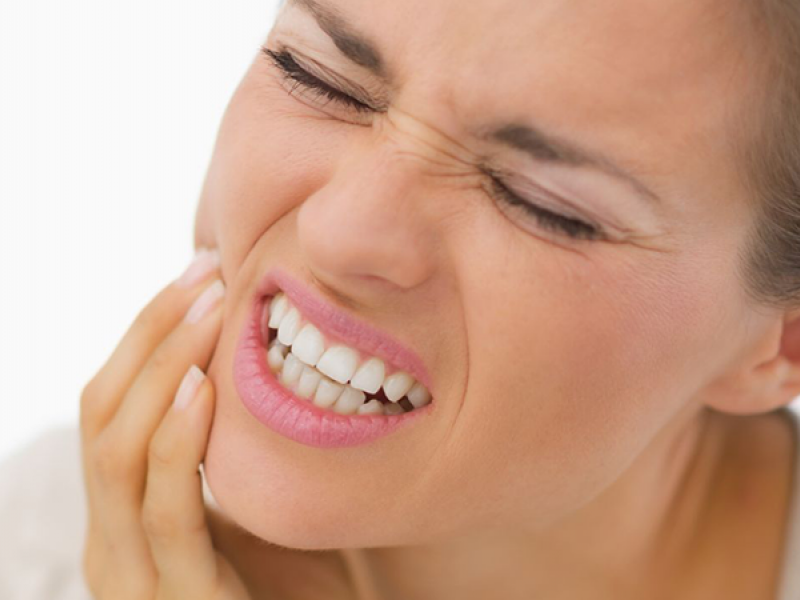What is Bruxism?
Bruxism is a disorder known as teeth clenching or grinding, which usually occurs during sleep. This condition, which occurs due to stress, anxiety or problems in the jaw structure, can damage your teeth, jaw muscles and general oral health. Bruxism can occur not only during sleep but also during the day without you realizing it and can lead to serious health problems in the long term.
What are the Symptoms of Bruxism?
Teeth Wear and Cracking:
Constant teeth clenching causes tooth enamel to wear down and causes teeth to become more sensitive.
Jaw Pain and Tension:
A feeling of pain, stiffness or fatigue in the jaw muscles is a common symptom.
Headaches:
Bruxism can cause headaches, especially in the morning.
Tooth Sensitivity:
Abrasion in tooth enamel can increase sensitivity to hot and cold foods.
Temporomandibular Joint Problems (TMJ):
Bruxism can cause clicking, pain or opening difficulties in the jaw joint.
Sleep Disorders:
Since bruxism usually occurs during sleep, it can reduce the quality of sleep and cause a feeling of tiredness in the morning.
Causes of Bruxism
Stress and Anxiety:
The stress of daily life is one of the most common causes of teeth grinding.
Emotional Factors:
Emotional states such as depression, anger or frustration can contribute to bruxism.
Jaw and Tooth Structure Disorders:
Problems in tooth alignment or abnormalities in the jaw structure can trigger bruxism.
Genetic Factors:
People with a family history of bruxism are more likely to experience this condition.
Sleep Disorders:
Problems such as sleep apnea can make bruxism easier to develop.
Alcohol and Caffeine Consumption:
Excessive alcohol and caffeine consumption can trigger or aggravate bruxism.
How is Bruxism Treated?
Treatment for bruxism varies depending on the underlying causes and the person’s condition. Here are the treatment methods that can be applied:
- Night Plates (Dental Protectors):
Night plates specially designed by the dentist reduce abrasion and pain by preventing the teeth from rubbing against each other.
They can be made of hard or soft materials.
- Stress Management:
Try relaxation techniques such as meditation, yoga or deep breathing exercises to reduce stress and anxiety.
If necessary, get support from a psychologist or therapist.
- Exercises to Relax the Jaw Muscles:
You can do special exercises recommended by your dentist to relax the jaw muscles.
You can apply a hot compress to reduce the fatigue of the chewing muscles.
- Medication:
In some cases, muscle relaxants, painkillers or antidepressants can be used.
Medication should definitely be applied under the supervision of a specialist.
- Teeth and Jaw Correction:
The dentist may recommend orthodontic treatment to correct problems in the alignment of the teeth caused by bruxism.
Surgical intervention may be required for jaw disorders.
- Botox Applications:
Low-dose Botox injections into the jaw muscles can alleviate bruxism by reducing muscle overactivity.
Botox is usually a temporary solution and its effects last for a few months.
Recommendations for Protecting Yourself from Bruxism
Reduce Stress:
Take time for yourself to reduce the stress in your daily life.
Avoid Clenching Your Teeth Unconsciously:
If you feel like you are clenching your teeth unconsciously during the day, try to consciously relax yourself.
Create a Comfortable Sleep Environment:
Creating a relaxing environment before going to sleep can reduce the risk of bruxism.
Reduce Alcohol and Caffeine Consumption:
Avoid alcohol and caffeine consumption at night.
Do Not Skip Dentist Check-ups:
You can detect bruxism symptoms at an early stage by having your teeth checked regularly.
Although bruxism is a disorder that negatively affects your dental health and quality of life, it can be controlled with the right treatment methods and precautions. If you are experiencing symptoms of teeth grinding or clenching, consult a dentist to evaluate the appropriate treatment options for you. Remember, a healthy jaw and teeth structure is an important step for overall health!




